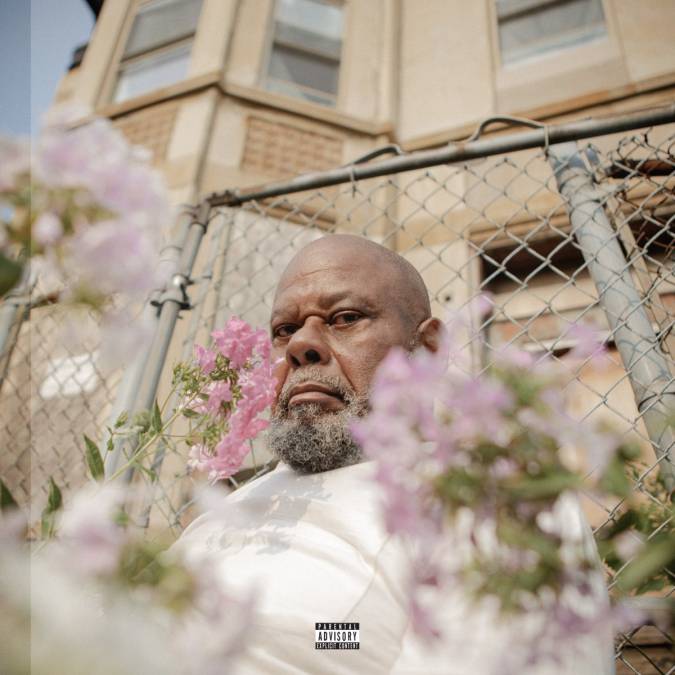SABA 'Few Good Things' Album Is A Cathartic Exhale That Pulls Listeners Through Emotional Dips

When Saba released his opus CARE FOR ME in 2018, his world was shrouded in darkness and death. The fatal stabbing of his cousin a year prior, founding Pivot Gang member Walter Long Jr. aka dinnerwithjohn, left him and his loved ones stricken with loss, casting a shadow over the album’s themes and tones.
The hyper-focus on the loneliness of the grieving process, marked primarily by Baroque-esque, melancholic pianos and poetic memorials that pierce the soul of the most emotionless listener, turned CARE FOR ME into a time capsule of grief and existential crisis.
His new album, Few Good Things, shatters the thematic and sonic expectations set by its predecessor. It incorporates a dizzying mix of production styles including neo-soul, funk, and various Hip Hop subgenres with production responsibilities from daedaePIVOT and Daoud. Saba provides a transparent and comprehensive look at his life experiences. He allows room for both vaunted celebration and rueful mourning, exemplifying the duality of the human condition with measured balance. Both captivating and endearing, his reflective raps register as powerful and poignant at every turn, showcasing a storyteller at the peak of his abilities.
To expect constancy in Saba’s sound and subject matter would be disingenuous. He’s amassed new experiences, found personal and artistic success, faced new challenges and losses. The lead single “Fearmonger” is a complete departure from the dark and depressive overtones of CARE FOR ME. On the surface, it’s a euphoric groove powered by funk-fueled guitar production that evokes feelings of joy at every measure. But even against a bubbly backdrop, there’s room to muse about anxieties dealing with failure and mortality. “And scared money never made money—what I was taught/But once you made money, you be more afraid than us all,” he raps, acknowledging the paradoxical relationship of gaining wealth with deft wordplay.
The G Herbo-assisted “Survivor’s Guilt,” sees Saba rapping with an explosive and magnetic ferocity that’s always welcomed from the Chicago rapper. The production sounds like a hybrid between a drill anthem and a religious chant song. His ragged breaths and crescendoing voice inflections display an exhausted, internal fury as he vents about broken familial promises and his cousin’s death. His rapping feels right at home next to Herbo’s arhythmic flow.
It’s when the album strays toward the generic that it loses its steam. “Stop That,” tries to convey a message that advocates for ignoring outside noise and criticisms. However, it’s undercut by a subdued beat that fails to capture attention, droning quietly in the background without moving the needle. “If I Had a Dollar,” while featuring nice messaging about accepting failure and losses and a solid verse from Benjamin Earl Turner, sees a disconnection between Saba’s energy and the track’s production where he’s overpowering the trudging beat.
The standout moments occur when Saba grants himself space to let his racing thoughts take center stage, reaching the emotional peaks in the final stretch. “Make Believe” slows the project down and allows his words to become the focus. “I got everything I could ever need/And I try to keep that in mind any time I meet tryna sell a dream,” he raps, fighting the urge to recklessly pursue wealth as he becomes satisfied with his lot in life. This moment grants a look into the relatable internal strife that endears Saba to many, unable to fully separate from the urges to become rich and remain thankful for where he’s at now.
“2012” is a love letter to his past self. Over quiet, melodic croons and a singular drum pushing the track along, Saba embarks on a reflective journey that takes the listener through romantic high school love stories and trips on the CTA’s Green Line. He celebrates the pillars of his childhood, referring to his Granny’s basement as the “Mecca,” while also weaving in the stark details of his upbringing. When he raps, “All these bodies drop on same blocks we play tag,” he’s refusing to glorify or sanitize his reality, electing for transparency that’s stronger than any hyperbolized retelling.
All over Few Good Things, Saba’s honesty manifests in vignettes that grant a holistic look at his life, good and bad moments alike. It results in superior storytelling and simplicity that few in the genre could hope to achieve, providing a solid base for him to return to if he ever loses his way, whether it be emotionally or creatively.
REPEAT ME
FAN FEEDBACK
Damn these first two songs on the Saba album are real good
— Tobra (@ImSeahawks) February 4, 2022
here we fucking go, been waiting on saba for so long pic.twitter.com/il34iVjJBU
— steez (@steeztalkscrap) February 4, 2022
THIS NEW SABA IS LIKE NOTHING I HAVE EVER HEARD BEFORE WTF
— kschoob (@kschoob) February 4, 2022


